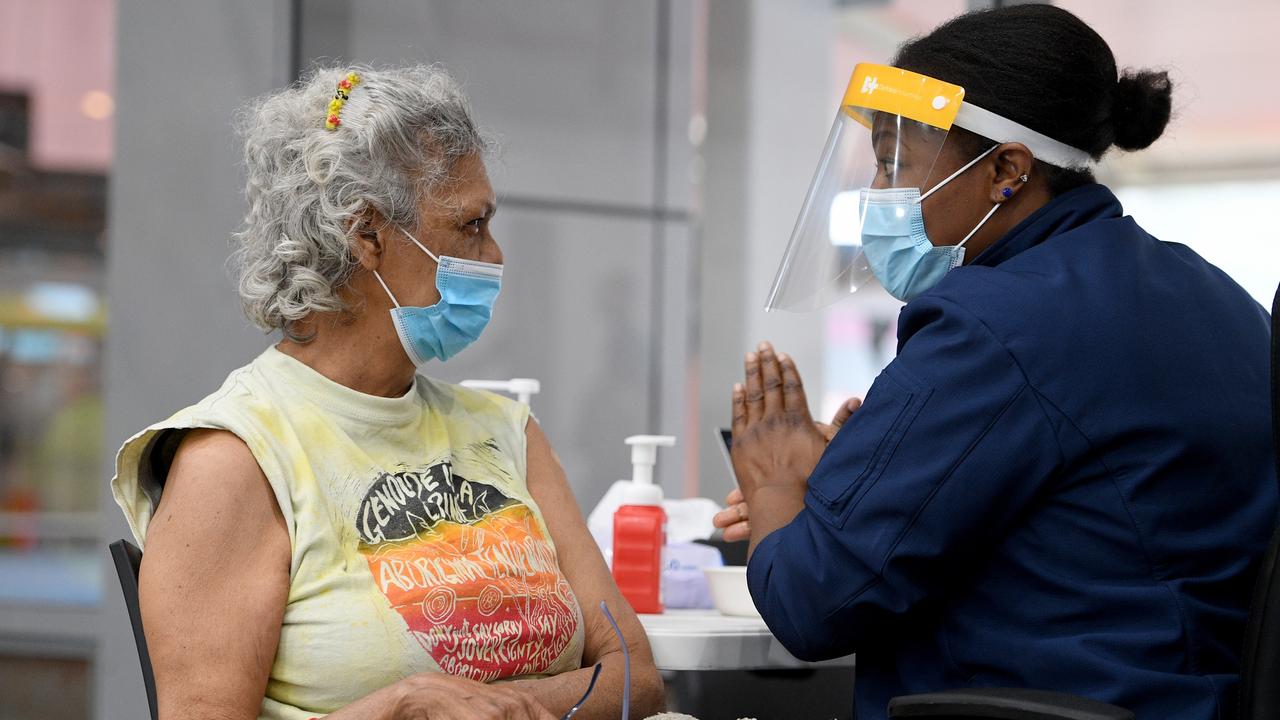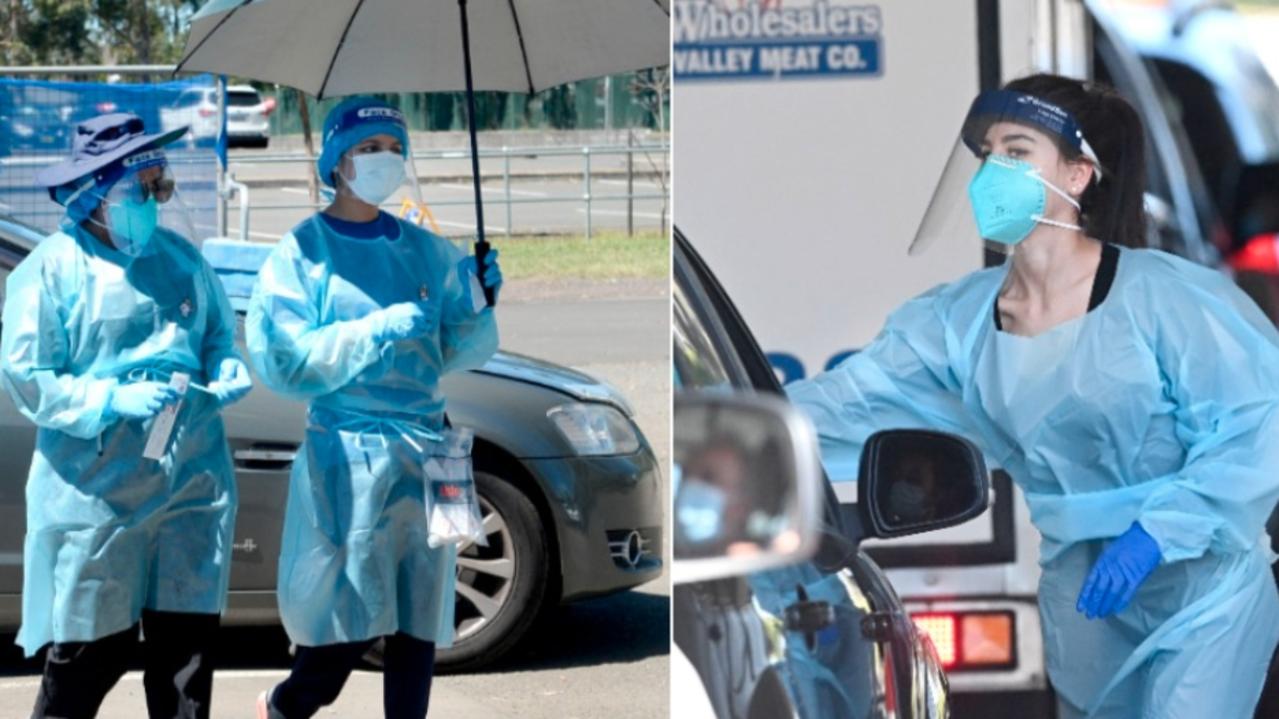Brain-damaged Sydney boy Roki Mills has a higher than average reading level
THIS inspirational toddler, 3, is brain-injured but has a reading level that’s as good as some seven-year-olds. Roki Mills’ parents have credited stem cell therapy for aiding their son’s improving health.
Nth Beaches
Don't miss out on the headlines from Nth Beaches. Followed categories will be added to My News.
- Mum calls for blood cord trials to help brain-damaged kids like Roki
- Help us ‘fix’ Roki
- Roki shows improvements after stem cell therapy
THE parents of brain injured Roki Mills say they will continue with a relentless program of exercises seven-days-a-week until he is better.
The Newport boy, who turned three at the weekend, suffered a severe lack of oxygen during labour which left him with severe quadriplegic cerebral palsy.
The devastating brain injury meant he had no muscle control, tone or co-ordination, painful muscle spasms and dangerous seizures.
However, with donations from the northern beaches community, Roki has been to India for stem cell treatment and follows a strict US-based program at home aimed at reawakening the damaged pathways of the brain.
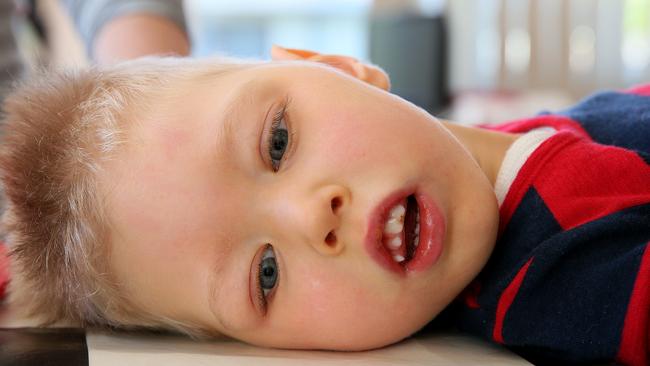
His mum Ina said his life has vastly improved from the treatment.
He can now lift his head, has begun to move his arms and legs, swallow, cough and clear his lungs more independently.
Amazingly, he is learning to read and his mum Ina said the brain institute assessed his reading age to that of a six or seven-year-old.
His muscle spasms have also stopped and his seizures have reduced.
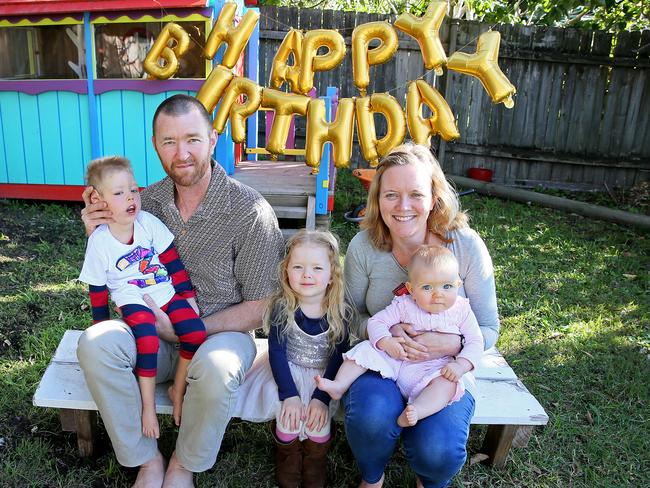
“Before he would get a cold, which would develop into pneumonia and we were always in and out of hospital,” said Mrs Mills, 41.
“He couldn’t clear his own lungs.”
Now with breathing exercises his chest had grown 4cm in eight months from intense respiratory exercises and he hasn’t been to hospital in two years.
“For us that is such a massive achievement,” said Mrs Mills, who also has Ruby, 4, and Rosie, seven months, with husband Dave.
However, these improvements in Roki’s health come at a massive personal and financial cost to his parents and siblings.
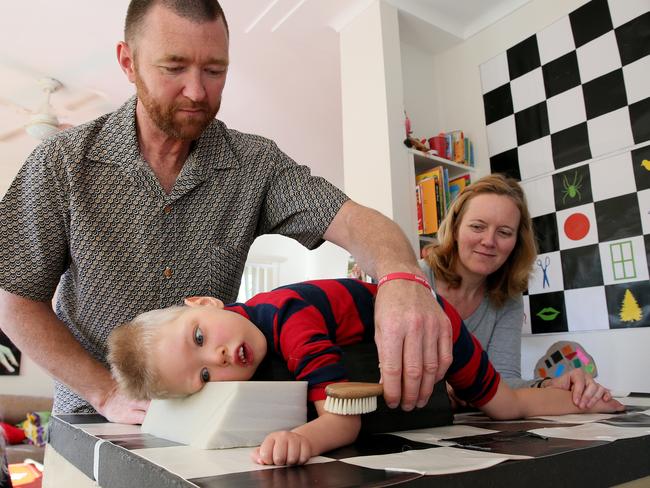
Roki follows a relentless regime of patterning exercises, a type of physiotherapy, where three people move his arms, legs and head at the same time, and other treatments from 7am until 5pm, seven days a week.
More than 140 volunteers are on a roster to help with the patterning.
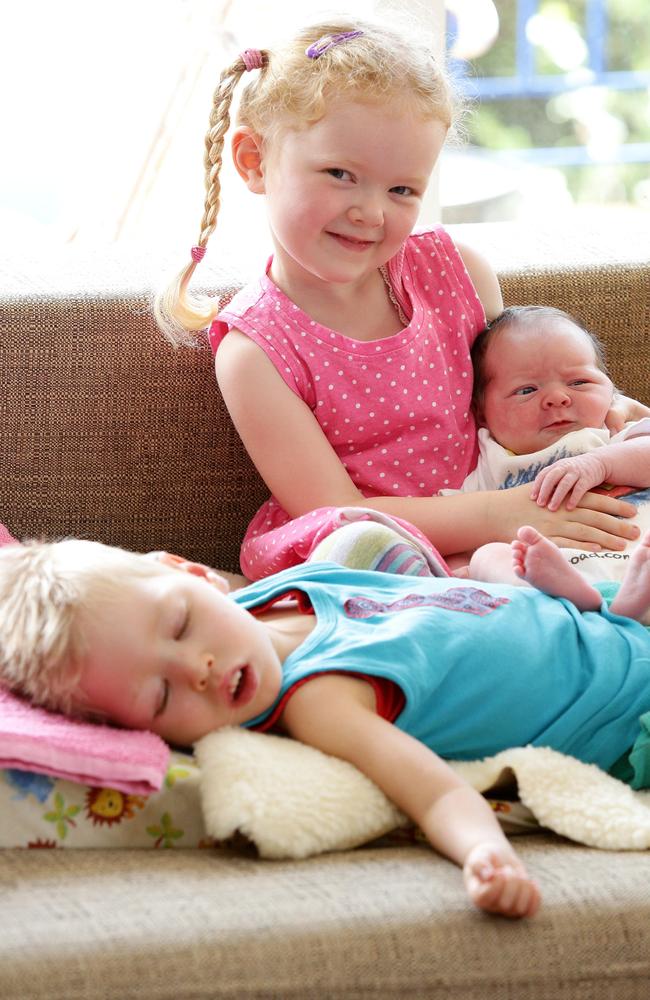
Mr Mills works just four days a week to try and give his wife a break on Fridays so she can take their daughter Ruby to swimming lessons and other activities.
As well as patterning, Roki undergoes breathing, tactile and reading exercises.
Mrs Mills who spends six or seven days a week on Roki’s program, said they would never give up on their son, even though it means they have less time for their other children.
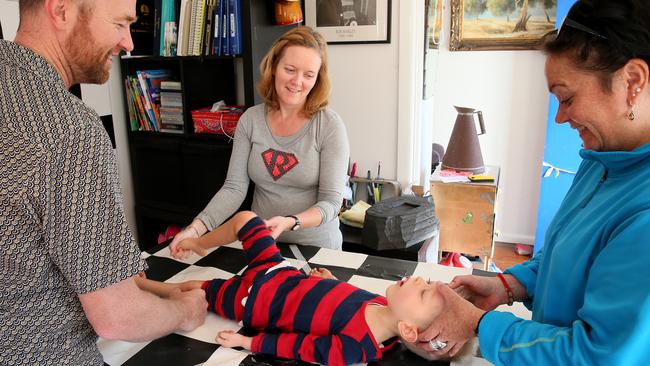
“Roki is our hurt child and we must help him,” she said.
“We can see every day that he’s in there. His eyes are alive with love, hope and so much determination.
“Working so hard on Roki every day makes us feel like it’s the best chance we can give him.
“What happened to him was so unfair. We promised him that we would fix him. We won’t stop trying.”
The family plan to go back to India for a fourth time, for further stem cell therapy not available in Australia, which the family believe has helped renew the damaged pathways in his brain.
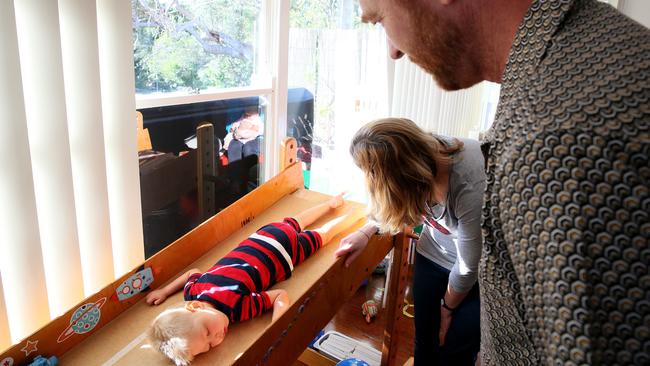
They also plan to return to the Institute for the Achievement of Human Potential in Philadelphia, which advocates the patterning exercises, for a third time, where he will be reassessed.
“They are really knowledgeable, they all talk very positively even about a child like Roki who has a profound brain injury, but, they do stress that this program is hard work and they set the bar very high,” said Mrs Mills.
The two trips mean the family needs to raise around $60,000 before October.
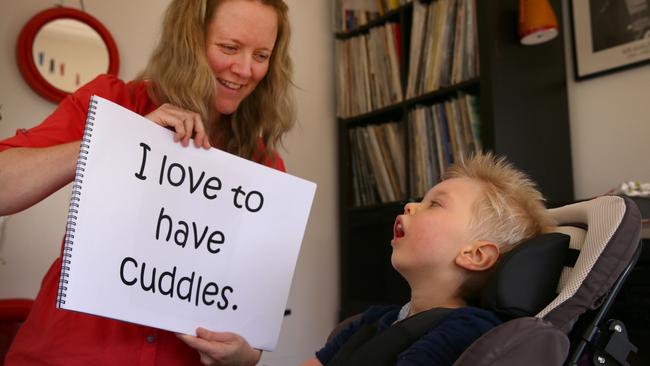
As well as working on Roki’s exercises all day and looking after two other children, Mrs Mills spends most evenings working on fundraising events.
The first is an Xmas in July comedy night on July 23, from 7pm to 1pm, at Ted Blackwood Narrabeen Youth and Community Centre in Warriewood.
The Roki Road Beach Challenge is a 4km sand run at Long Reef on August 13. Entry is free, but entrants need to raise $100 in sponsorship.
Go to rokiroad.com to buy tickets or make a donation.
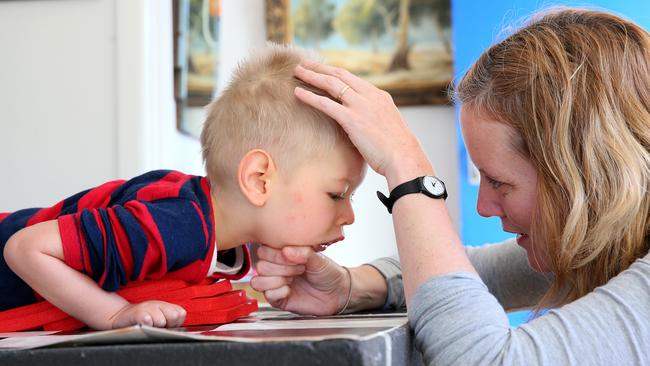
ROKI’S ROAD TO READING
READING is something Roki loves, according to his mum who teaches him 25 new words a week. When the Institute for the Achievement of Human Potential assessed Roki they said his reading level was well above his age.
Mrs Mills copies books out of the library, recreating them in large type, so Roki can see the letters clearly.
She then teaches Roki the words and reads the books to him.
After each sentence she watches as Roki follows the words himself. As Roki cannot speak, Mrs Mills tests him on his words by writing two words on boards where she asks him to look at the one she is saying out loud.
She also has a choice board, so Roki can answer a question by looking at a board, which says yes, no, maybe or I don’t know.
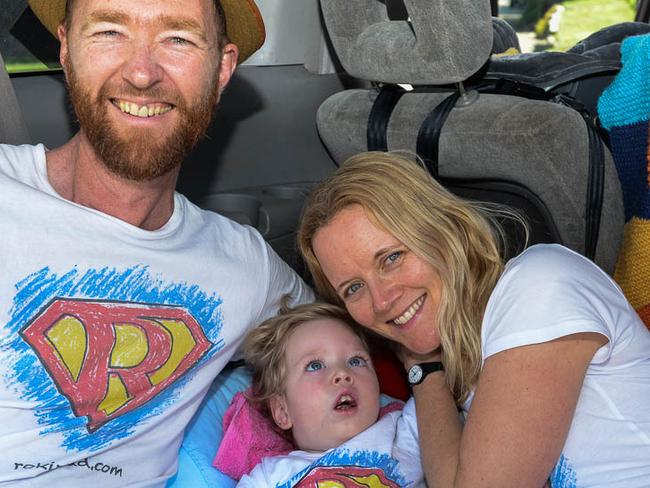
Mrs Mills believes teaching Roki to read has helped fire up parts of his brain, which in turn is aiding his physical recovery.
“Roki has a profound diffuse midbrain injury, which affects his gross motor skills, such as swallowing, eating and mobility.
“But his personality, thinking and sense of humour is still intact.
“There’s no reason why he cannot learn to read. Reading helps the neurological organisation in the brain, which in turn helps everything else.”
Got to manlydaily.com to watch Roki reading and undergoing his patterning treatment.


